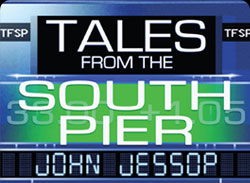I wrote the following piece for a trade publication, but thought it timely enough to qualify as a ‘Rant’. I used to work as a journalist for Reuters, a long-established and respected international news agency. In late years, the company has been running ‘sponsored’ news, paid for by companies and institutions with a message to impart, and labelled as such. The practice is becoming worryingly widespread in the news media as a means of providing extra earnings.
Reuters may be a business but it has no business carrying sponsored content. Period, end of story.
The same goes for any news organisation concerned about its editorial integrity. Yes, even the self-righteous New York Times. Perhaps especially the New York Times, which still takes pride in its status as a ‘newspaper of record’.
I hate to be an evangelist, but there should be no ‘ifs’ or ‘buts’ on this issue. All kinds of reasons may be presented to justify the practice, as Bob Crooke has valiantly argued. In my opinion, they represent a slippery slope, and one with a precipitous drop at the end of it.
Sponsored content, now quaintly called ‘native advertising’, used to be called plain ‘advertising’. Some time ago the word ‘advertorial’ slipped into the language. That says it all: a hybrid work was needed to describe a hybrid product. News is not a hybrid product.
Even the least observant newspaper reader can tell the difference between genuine news and advertising because the two have always been graphically defined. Advertisements, in short, are unmistakably advertisements; news looks like news. If news quacks like a duck and looks like a duck, it can confidently be identified as a duck. Sponsored content quacks like a duck, looks like a duck but is something else entirely. A duck-billed platypus, for all anyone can tell.
Forget the figment of disclaimers. They are just that: figments, whether they appear at the beginning of the article, at the end, or somewhere between, regardless of the size or shape of the font. Just as few consumers read the fine print when buying commercial products, few readers will be inclined to read the fine print on published articles. Nor should they be asked to.
If the owners of Reuters are so badly in need of marginal revenue that they must resort to shady practises in order to produce a decent news file, they should get out of the business.
C.P. Scott summed up the choice perfectly: “Comment is free, facts are sacred”. He must be spinning in his grave.


Be First to Comment